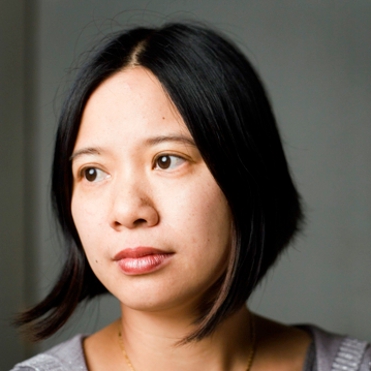Artists
Liza Lim (Composer)
Liza Lim is very excited about the new Akademie der Künst der Welt in Cologne with which she is involved. She told us that “it is an incredibly inspiring project”. As a composer Liza never stops. She supports the idea of “quotas to ensure representative access to structures of power and opportunity, rather than thinking about this in terms of ‘gender versus quality’”. She is ‘open to synchronicity’. Lim told us: “I’ve sometimes felt envious of church composers like Bach, Gabrieli, etc who had to produce work ‘on tap’ week after week for their employers”. She loves “working with the same musicians again and again, in the process finding out new things about their musicianship and developing into a more intimate knowledge of their performance practice”. So it would suit her if a composer had “Infinite patience; infinite stubbornness”.She likes opera and mentions that “the last piece of music that really got obsessively ‘under my skin’ was Tristan und Isolde which had me in its thrall from 2004-8. I got over it by writing an opera called The Navigator.”
For Lim composition in this day and age is: “a way of articulating the sensual, the intellectual, the spiritual”. If she had not been a composer she would probably have liked to be an archaeologist –“ I’ve always been fascinated by the way the past radiates ‘lines of force’ into the present and future. I’m also interested in things like how memory is laid down, the psychological ‘pattern languages’ that inform who we are, the decisions that we make, our reactions, our gestures – many of these things completely unavailable to our waking or ordinary consciousness.”
She likes travelling, silence, authenticity; early influences include Yoko Ono, John Cage, Berio, Reich, Ferneyhough, Nono, Penderecki, Globokar, Webern, Bartok but she relishes the present because “it’s so diverse – many different worlds colliding and interacting in unpredictable ways.”
She is collaborating with Ensemble MusikFabrik, and with director Massimo Furlan and his theatre company Prod. 23 and ZKM for an opera based on Jonathan Safran Foer’s book Tree of Codes (for 2014). Her advice to young composers would be “Be yourself – that’s a big challenge, a life-long one! Try not to worry about what anyone else thinks about your work. Live your passion.” And her motto is “Say ‘yes’ more than ‘no’”.
El Compositor Habla


